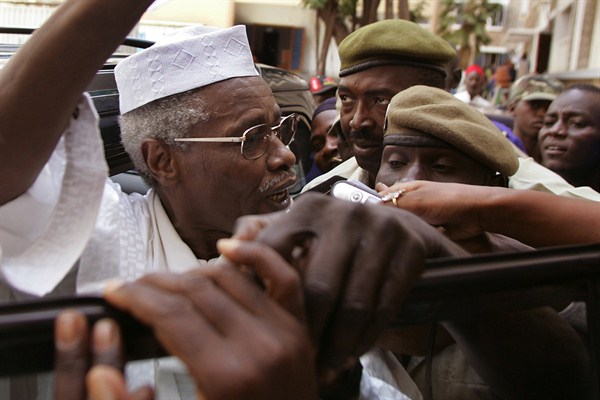Editor’s note: This article is adapted from Celeste Hicks’ book “The Trial of Hissene Habre: How the People of Chad Brought a Tyrant to Justice,” which was published by Zed Books this month.
In July 2015, the unthinkable happened. After having spent more than 20 years living in comfortable exile in a plush suburb of Dakar, Senegal’s capital, Chad’s former president, Hissene Habre, was brought before the Extraordinary African Chambers, or EAC, a special court set up within the Senegalese judiciary. The beginning of his trial came two years after he was arrested in Dakar and charged with war crimes, crimes against humanity and torture carried out during his tumultuous rule in the 1980s.
The trial was a landmark event for a number of reasons. The EAC was the first court to be established by the African Union, and Habre’s trial marked the first time the leader of one country would be tried by another country. It was also the first time a case based on universal jurisdiction—the legal principle by which national courts claim the authority to try cases involving serious crimes regardless of where they were committed or the nationality of the suspect—had made it to trial in Africa.

